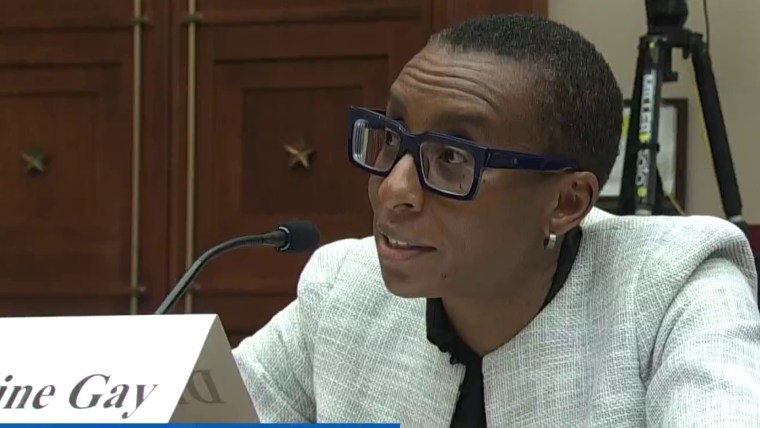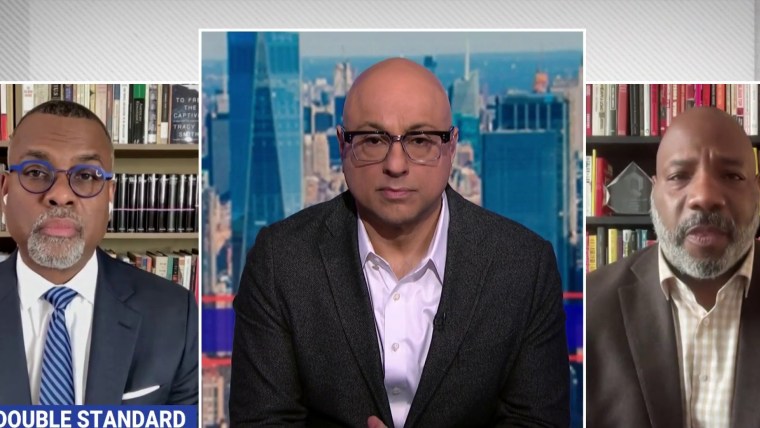In the aftermath of the resignation of the first Black president of Harvard University, celebrity businessmen Bill Ackman, Elon Musk and Mark Cuban are clashing over the virtue of diversity, equity and inclusion (DEI) initiatives at organizations. It’s a depressing scene. The unspoken premise for Ackman’s diatribe last week on the issue is a bigoted one. And it’s a signpost of how the right-wing backlash against DEI is taking aim at even the most incremental societal attempts to try to mitigate the effects of social inequality.
This specific round of debate was kicked off by Ackman’s essay-length criticism of DEI programs on X after Claudine Gay stepped down. If you haven’t been keeping up with the news, the backstory is important: Ackman, a billionaire hedge fund manager and major Harvard donor, was one of the activists in a successful campaign to oust Gay from her job. That effort was about punishing her for failing to meet the rhetorical standards of pro-Israel and right-wing activists when she testified alongside other university presidents before Congress in December about antisemitism on campuses. (As legal commentator Ken White has pointed out, Republicans sought to use the hearing as a trap, and the questions underlying speech on campus are in fact far more complicated than the viral soundbites suggested.) When a pressure campaign characterizing her as indifferent to antisemitism didn’t seem to work, right-wing activists scrambled for other ways to hit Gay, dug through her work, and alleged that she plagiarized in her scholarship. According to The Harvard Crimson, the Harvard Corporation "announced that though instances of improper citations had been identified in Gay’s scholarship, they did not violate Harvard’s standards for research misconduct." But after the storm of controversy didn’t abate, Gay resigned.
What Ackman and Musk fail to recognize is the way that institutional racism systematically makes people from more privileged backgrounds “the favored candidate” in most recruitment pools.
Remarkably, Ackman chose to run his victory lap by suggesting that Gay’s downfall could be traced back to DEI practices. In his post on X, he speculates that Gay’s role in diversity programs at Harvard and “DEI ideology” may have “made Gay the favored candidate” to become president last year. “It is one thing to give disadvantaged people the opportunities and resources so that they can help themselves,” he wrote. “It is another to select a candidate for admission or for a leadership role when they are not qualified to serve in that role.” In other words, he implied Gay’s errors — which someone of any background could’ve made — could be traced back to lower hiring standards for her due to her identity.
The subtext of Ackman’s remarks aligns with a common trope among right-critics of DEI: that diversity initiatives result in subpar people of color being hired and supplanting more qualified white candidates. Musk, the owner of X, eagerly jumped aboard the DEI demonization effort, commenting on Ackman’s post: “DEI is just another word for racism. Shame on anyone who uses it.” Cuban, an owner of the Dallas Mavericks, then jumped into the fray by arguing in favor of DEI as both a social good and a boon to business: “Having a workforce that is diverse and representative of your stakeholders is good for business,” he wrote.
What Ackman and Musk fail to recognize is the way that institutional racism systematically makes people from more privileged backgrounds “the favored candidate” in most recruitment pools. Moreover, the purpose of DEI considerations in recruitment is to always to identify candidates who are qualified for a job, but also to give some degree of emphasis to candidates from backgrounds that are marginalized. That’s based on the premise that they tend to be underrepresented at many institutions and also have a social disadvantage in developing the credentials and social connections often needed to stand out in candidate searches. The purpose and effect of these programs isn’t to discriminate against white candidates, but to counterbalance the effects of systematic discrimination against people from marginalized backgrounds. (It’s also noteworthy that right-wing critics of DEI these days focus primarily on the politically potent issue of race, but DEI also includes consideration of ethnicity, religion, immigration status, disability, sex, gender identity, veteran status and more.)

None of this means that DEI efforts should be immune to criticism. DEI efforts can be executed in a vulgar, tokenistic way. And from my left-wing vantage point, DEI efforts in elite spaces are often a cosmetic attempt to reverse racism, relative to more sweeping measures such as reparations and desegregating real estate and the education system. But, in general, DEI commitments at companies enrich them while also fostering civic responsibility appropriate for employers in a multicultural but socially unequal democracy. What’s striking about Ackman’s claims about Gay not being qualified is that critics who make such comments never seem to argue that flawed well-off white male leaders may have ascended to their perches because they were beneficiaries of unearned advantage conferred by their background.
That Cuban had to defend the principles of DEI to two highly influential business executives is representative of an intensifying conflict over something that should be — and used to be — fairly uncontroversial in a multicultural society. DEI initiatives can be traced back to civil rights-related efforts to integrate the workforce in the 1960s. After a then-Minneapolis police officer murdered George Floyd in 2020, there was a big uptick in corporations investing in DEI officers and embracing DEI programs to diversify staff and leadership. That wave has since ebbed, and investment in DEI has been fading. But comments such as Ackman’s and Musk’s are a reminder that the pendulum is swinging so hard the other way that even pre-2020 DEI-related norms could be rolled back.
We’re already seeing efforts that include Florida Gov. Ron DeSantis’ attacks on DEI programs in Florida higher education and Louisiana State University dropping diversity language from its website. Right-wing activists are directing fury and boycott attempts against companies that showcase diversity in their advertising or messaging. And additionally the Supreme Court ruling against affirmative action in 2023 has reportedly led some companies to drop DEI initiatives that would not have been considered remotely controversial in the recent past. If it becomes more socially acceptable for influential business leaders to rail against the most anodyne diversity goals at companies and colleges, you can count on the workforce growing more segregated again, and increased homogeneity in leadership positions.

